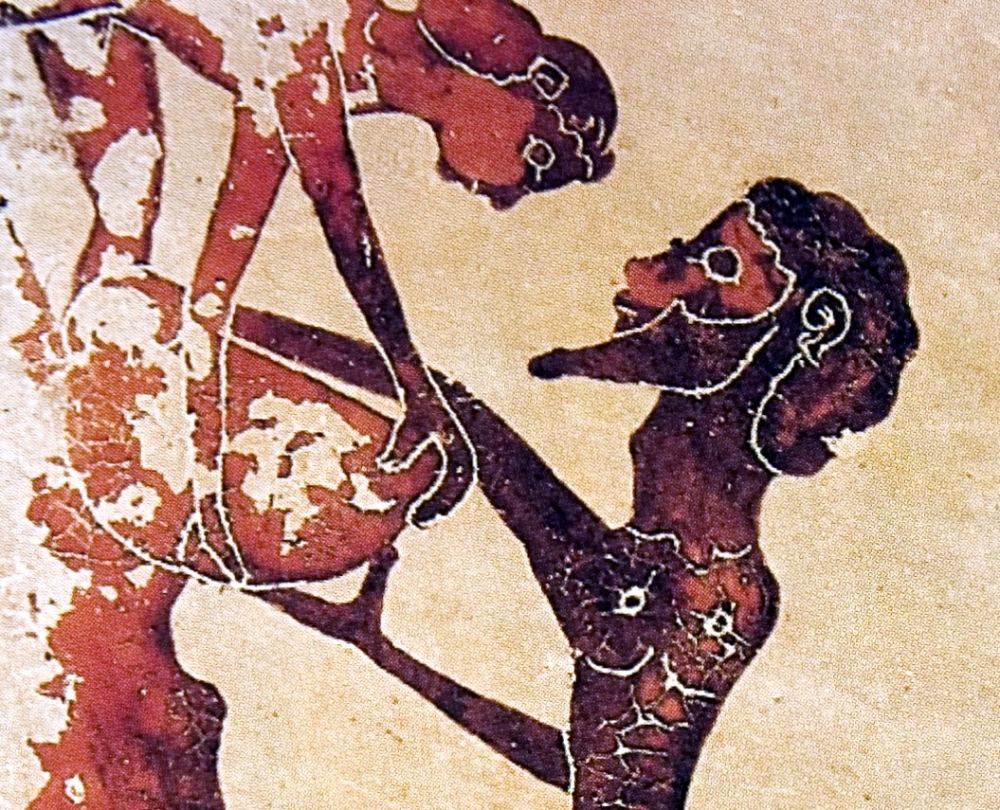
Bound by History
Slavery is often spoken of as a relic of history, yet it persists in different forms around the world, and freedom itself remains an elusive concept. A conference organized by three UC Santa Barbara scholars will examine slavery across time and cultures and seek to understand what it means to be free.
“Slavery, Captivity and the Meaning of Freedom” will take place Thursday and Friday, May 12 and 13. The opening address, which is free and open to the public, will be given by Kostas Vlassopoulos, a professor of history and archaeology at the University of Crete. Delivering the 2016 Argyropoulos Lecture in Hellenic Studies, he will speak on “What Is Greek Slavery? In Search of a Novel History” May 12 at 5:30 p.m. at the Alhecama Theatre in Santa Barbara.
The conference, which will begin May 13 at 9 a.m. in 4080 Humanities and Social Sciences Building, will feature speakers from across the nation in a variety of disciplines. It arose after the organizers found that their different interests nonetheless overlapped in intriguing ways. “Although our specific research seemed vastly different, it seemed we had mutual connections in how various societies understood and practiced ‘freedom,’ ” said James Brooks, a professor of history and of anthropology. “We thought taking a broad look across time and space with ‘freedom’ as one focus might illuminate some new insights.”
Organized by Rose MacLean, an assistant professor of classics, Jeannine DeLombard, an associate professor of English, and Brooks, the conference will especially look to history, ancient and recent, in assessing slavery’s impact on societies. “Studying slavery in ancient Rome, and in the ancient Mediterranean more broadly, helps to contextualize modern slave systems by linking them into a world history of captive-taking practices,” MacLean explained. “Comparative work of this kind allows us to understand the forces that produce particular modes of captivity and that foster certain types of resistance. The slave-holding systems of classical antiquity have a long and complex legacy, including the use of Roman legal constructs and Western notions of freedom.”
The Greeks in particular had a conflicted relationship with slavery, noted Helen Morales, who holds the Argyropoulos Chair in Hellenic Studies and is a professor of classics at UCSB. “The Greeks were one of the first societies to worry about slavery and freedom,” she explained. “At the same, it was slave-owning society. So, you’ve got on the one hand a society whose economy, army, education and democratic apparatus relies on slaves. And then you’ve got some of the most forward-thinking philosophers worrying about slavery. So that’s foundational for slave-owning societies both in Europe and other parts of the world whose arguments and practices often go back to the Greeks and the Romans.”
Indeed, those early societies left us more than democracy, philosophy and the Romance languages. “One of the goals for the conference is to gain a clearer sense of the perceived legacies of slavery and the different meanings of freedom in various communities,” DeLombard said. “These are exactly the questions addressed by two of our presenters.”
Stephen Small of UC Berkeley will explore the cultural memory of slavery in Britain with his talk. In the conference’s closing address, P. Gabrielle Foreman will consider the ways slavery’s legacy informs the art of contemporary African American artists Theaster Gates and Glenn Ligon in unexpected ways. Foreman, the Ned B. Allen Professor of English at the University of Delaware, will speak on “Black Art Matters: Slavery, Print Memory and Freedom's Fugitive Meanings” at 4 p.m. in 4080 HSSB.
More information about the conference, including registration for the May 13 sessions, can be found at http://www.ihc.ucsb.edu/meaning-of-freedom-conference/. Questions can be directed to slavefree.ucsb@gmail.com.



